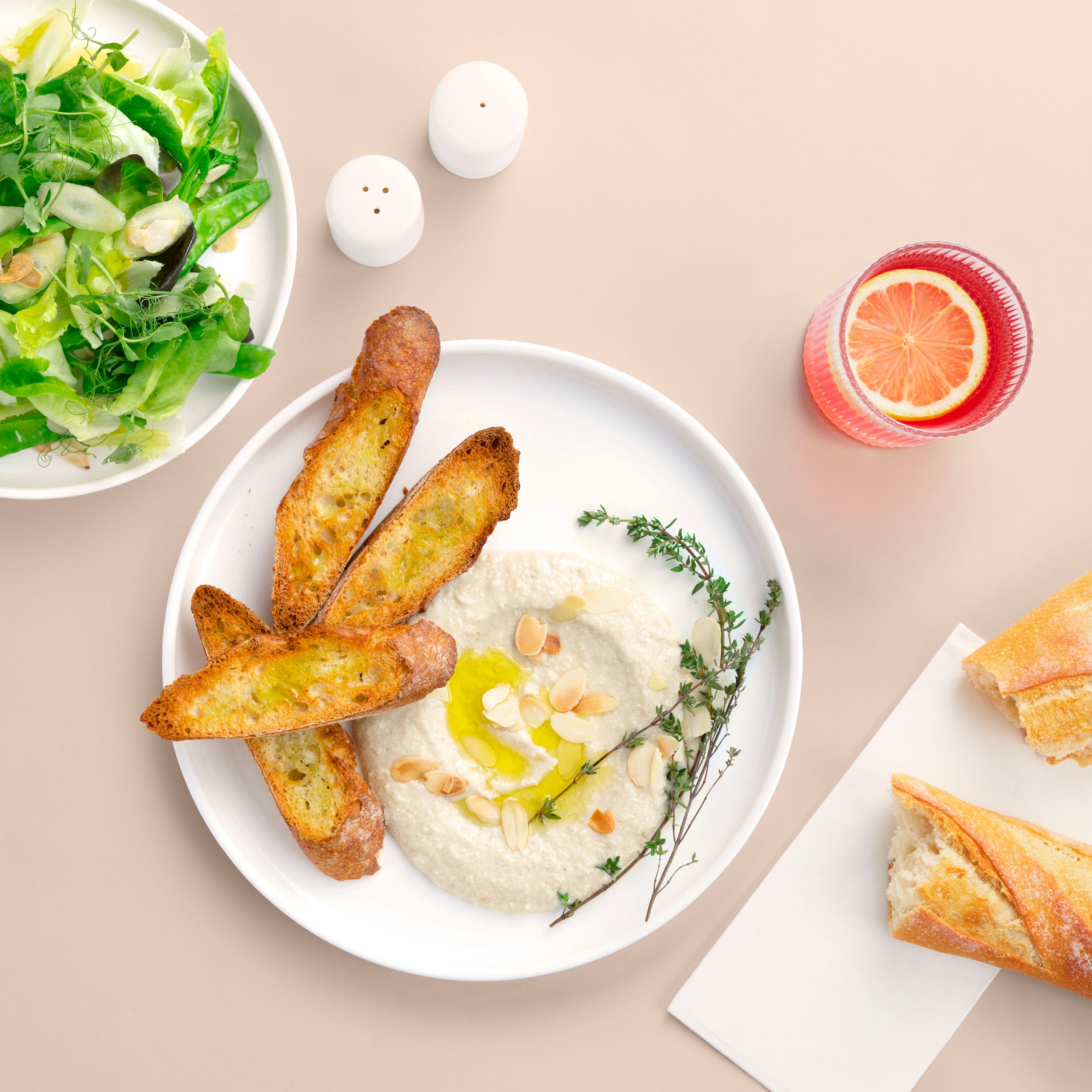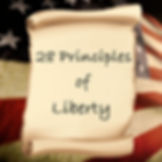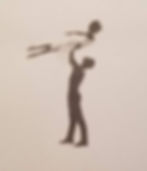top of page



TJLA Class Descriptions
Builders Crew....Ages 5-7 (4 and younger with a parent)....10:00-11:00...DeAyn Greevers...Bottom of Stairs
Builders Crew is a hands on learning class.
Why Hands-On Learning?
It allows little people to engage in kinesthetic learning. By experimenting with trial and error,
children learn from their mistakes, thus understanding the potential gap between theory and
practice. Hands-on learning is the common name for “Experiential Learning” - The philosophical
term behind the method of immersing oneself in a process in order to learn it. Experiential
Learning has been around since 350 BC, when Aristotle wrote, “for the things we have to learn
before we can do them, we learn by doing them“. This method ultimately became popular in the
early 1950s when famous psychologists such as Jean Piaget, John Dewey and Kurt Lewin shed
some light on Experiential Learning, quickly making it a staple in American education.
So How Do We Apply It In Builders Crew?
We let the child do the doing! We offer them opportunities to SORT and CLASSIFY,
MANIPULATE and TRANSFER, as well as MAKE and CREATE! A child can NOT ‘do the doing’
unless they have been given the opportunity to actually DO IT! So, let’s DO IT and have some FUN!
Institute for Excellence in Writing...Ages 9 to 13...9:00 to 10:00...Alisa Ellis...Scholar Room at the top of the stairs

General Dance (Hip Hop/Acrobatics...Ages 9 to 13...10:00 to 11:00...Candice Vaughn....Large Basement Room
Instructor: Mrs. Vaughn
Email: C.PureTechnique@gmail.com
Course Description: General Dance is a class that introduces dance skills and knowledge to students ages 9-12. The main objective of the course is to familiarize students with different rhythms and dance styles while having fun! Students will develop beginning knowledge in performance, and technical skills that will help develop them into becoming a well-rounded dancer. This semester will be a combo class that combines Hip-Hop and Acrobatics.
By the end of the course, students should be able to:
• Confidently perform at least 2 choreographed dance styles
• Understand basic dance vocabulary and the origin of 2 different dance styles
• Develop dance appreciation
• Find enjoyment and fitness benefits
• Develop beginning dance technical and performance skills
• Express feelings and develop social relationships with peers
• Develop a positive self-image
Attendance:
Class - Students need to be in attendance at least 70% of the course in order to be a part of the showcase. Being active and paying attention during class is part of this effort. Class will start promptly on the hour we are scheduled and students are expected to be prompt with their efforts as well. If a student misses warm up they will sit out the remainder of class.
Performance - Students are expected to be reliable for our class as a team and attend our end of semester rehearsals or showcase/s. Being prompt and arri
Quest Club...Ages 10 to 12...10:00-11:00...Jennifer Parent and Jona Tuft...Garage
Quest Club is a love of learning class that exposes young learners to a variety of different unit studies. Each study is taught as a 3-4 week mini-unit. During the unit study, class participants immerse themselves in many different types of learning--from hands-on learning, book discussions, expert guest speakers, to guided field trip opportunities. This is a class that dives deep and won't disappoint!

Cooking with Kids...Ages 7 to 11...12:00-1:00...Emily Dial and Janalee Fish...Garage
Alternates Fridays with Gardening.
Possible cooking Projects please let Emily know the ones you like! Mozarella Sticks, Granola Bites, Apple cinnamon muffins Pizza, Chicken Nuggets, Ice cream in a ziploc, Fruit popsicles, Baked donuts, Blueberry pancakes, Chocolate chip cookies, and Homemade cheez its. Please share ideas as well!!
Student allergies and preferences- sugars free is an option if you would like along with dairy free, and gluten free, let Emily know about allergies to eggs, nuts, etc.
I am excited to cook with your child! Ideally we would like to have 6 to 10 students. This
number is a little flexible, but for safety reasons the absolute max would be 12.

Gardening...All Ages...12:00-1:00....Janalee Fish and Emily Dial....Outside
Alternates Fridays with Cooking with Kids
Liberty Club...Ages 8 to 13...1:00-2:00....Alisa Ellis...Garage

Junior Improv...Ages 8 to 12...2:00-3:00...Mentor TBD...Location TBD

Social Dance I/II...Mature 13+...9:00-10:00...Candice Vaughn
Instructor: Mrs. Vaughn
Email: C.PureTechnique@gmail.com
Course Description: Social Dance I/II is a class that introduces social dance skills and knowledge in the first semester (I), then builds upon those skills within the second semester (II). The main objective of the course is to familiarize students with the different rhythms and dance styles that fall under the category of Ballroom. Students will develop knowledge and technical skills from the dance syllabus created by the Dance Vision International Dancers Association (DVIDA). They will study the beginning levels Pre-Bronze and Bronze. They may also receive hard copy packets to read through and study concerning origins or details of dance styles.
By the end of the course, students should be able to:
Confidently dance at least 3 steps in 4 different dance styles continuously to most commonly played music
Understand and or summarize the origin of 4 different dance styles
Develop dance appreciation
Find enjoyment and fitness benefits
Develop beginning dance technical and partnership skills
Express feelings and develop social relationships with peers
Develop a positive self-image
Attendance:
Class - Students need to be in attendance at least 70% of the course in order to be a part of the showcase. Being active and paying attention during class is part of this effort. Class will start promptly on the hour we are scheduled and students are expected to be prompt with their efforts as well.
Performance - Stu
The Pyramid Project...Ages 14 to 18...10:00-11:30...Sarah and Rebecca Hecht...Scholar Room at the top of the stairs
The Pyramid Project transitions the scholar from the Practice Scholar Phase to the Apprentice Scholar Phase. Students learn a whole new approach to math and science focused on a holistic method. The study of the subject of truth; Its structure - Logic; Its method - Habits of a Scientist: and its language - Math. Learn how to use Logic, Science and Math in order to get to the truth. The Goals of the Pyramid Project are:
1. To learn the four Intelligros: Truth, Logic, Math Language, and the Habits of a scientist. 2. Not to present a comprehensive math or science course, but to provide an atmosphere
where the characteristics of a scientist can be developed, truth sought after and recognized, and logic and reason developed. (Math and science courses/subjects are individually chosen for independent study as part of the requirements.) 3. For the student to begin to see that they have something unique to offer to change the
world. 4. To gain self-disciple and time management skills on a new level using log records and a
reporting system. 5. To recognize patterns of truth that are interrelated in scripture, science, math, and
nature. 6. To learn to follow a line of logic 7. To inspire self to do hard things 8. To learn to choose between good, better, best. 9. To begin to read like a lawyer, write like an author, think like a philosopher, speak like an
orator.
When deciding on the direction of study and the level of commitment the students should consider the following:
● 15-2
Social Dance III/IV...Ages 14+...11:30-12:30...Candice Vaughn...Large Basement Room
Instructor: Mrs. Vaughn
Email: C.PureTechnique@gmail.com
Course Description: Social Dance III(Semester one)/IV (Semester two) is a class that builds upon those skills developed within Social Dance I/II. The main objective of the course is to introduce more intricate, choreographed, ballroom dance pieces to the students. Students will learn 1 from each dance category, Standard and Latin. Students will develop knowledge and technical skills from the dance syllabus created by the Dance Vision International Dancers Association (DVIDA). They will study the intermediate levels of Bronze and beginning levels of Silver. They may also receive hard copy packets to read through and study concerning origins or details of dance styles. Lifts will be introduced, and more elaborate costume styles will be given and expected. Two performances may be expected instead of one.
By the end of the course, students should be able to:
Confidently dance 2 choreographed Ballroom dance pieces
Understand and or summarize the origin of 2 focus styles
Develop a greater dance appreciation
Find enjoyment and fitness benefits
Develop beginning/Intermediate dance technical and partnership skills
Express feelings and develop social relationships with peers
Develop a positive self-image
Enhance performance skills to a beginning/intermediate level
Learn basic dance lift skills
Maintain more responsibility and reliability
Attendance:
Class - Students need to be in attendance at least 70% of the course
Jesterz...Ages 12+...12:30-2:00...Jef Rawls...Large Basement Room
1. CONNECTION
a. Be more interested in others
b. Find common ground
c. Like, Admire & Respect = Friendship
2. CHARISMA
a. Bring Energy to your conversations
b. Smile! Charge their battery & bring joy
c. Play! Enjoy the moment & enjoy life!
3. COMMUNICATION
a. Engagement: Be in the moment
b. Eye contact, Be open, Be vulnerable
c. Hyper Listening: Ears, Eyes, Emotion
4. CONFIDENCE
a. 100% commitment to your choice
b. Show positive truth signals of behavior
c. Step outside of your comfort zone
5. COMEDY (Humor)
a. Defuse conflict / reduce stress
b. Be ready to laugh and be at fun!
c. Optimize your humor attraction
6. CREATIVITY
a. Ignore the ‘Saboteur’
b. Share your ideas & voice
c. Challenge the “status quo”
7. COLLABORATION
a. “Yes And” – (Disagree but Optimize)
b. Be open and willing to explore ideas
c. What can “we” create
8. COMPETENCY
a. Leadership qualities
b. Take care of yourself first!
c. Step into the unknown zone
9. COPING / HEALTH
a. Sense of belonging / community
b. Releases feel good chemicals
c. Stronger bonds / friendships
10. CHARITY
a. Give of yourself to benefit others
b. Care for and be aware of others needs
c. Help thine brothers boat across…
© Jef Rawls 2019 – www.JefRawls.com 
Key of Liberty...Ages 11+...2:00 to 4:00...Brandy Whitmer and Camille Tietjen, Large Basement Room
Key of Liberty Scholar Project
Students study of the American Revolutionary War period, the United States Constitution,
and other founding documents.
This class offers an inspiring environment in which students are challenged to learn
about many principles of government and read biographies of the founders. 
Advanced Quest...Ages 14+...2:00 to 4:00...Rebecca and Sarah Hecht...Scholar Room
Quest introduces students to some of the greatest statesmen and stateswomen in history.
Some of these are political leaders, but some are simply people of great character and
leadership ability that had notable impact on their community or even the world. As these figures
are studied, students begin to recognize the traits of great leaders and begin to apply them
toward their own development. The details of getting a leadership education are explored and
practiced. Quest is an Apprentice Scholar Phase project. As such, this class involves a higher
level of research and writing than previously experienced in the Practice Scholar classes of Key
of Liberty through the Hero Project. The student has opportunities to read great literature and
also learn better self-management skills.
The Goals of Quest are:
1. To learn the character traits of great leaders and for the students to begin to apply them
in their lives.
2. For the student to find their voice and begin to share it with others through writing and
speaking.
3. To understand the scholar phase continuum and continue along it.
4. To prepare for Self-directed Scholar Phase which prepares the student for their personal
mission.
5. To begin to read like a lawyer, write like an author, think like a philosopher, speak like an
orator. - The student will learn skills for effectively studying and discussing
documents/literature and writing papers backed by research.
6. To learn and continue to build self-management skills.
7. To cont
bottom of page